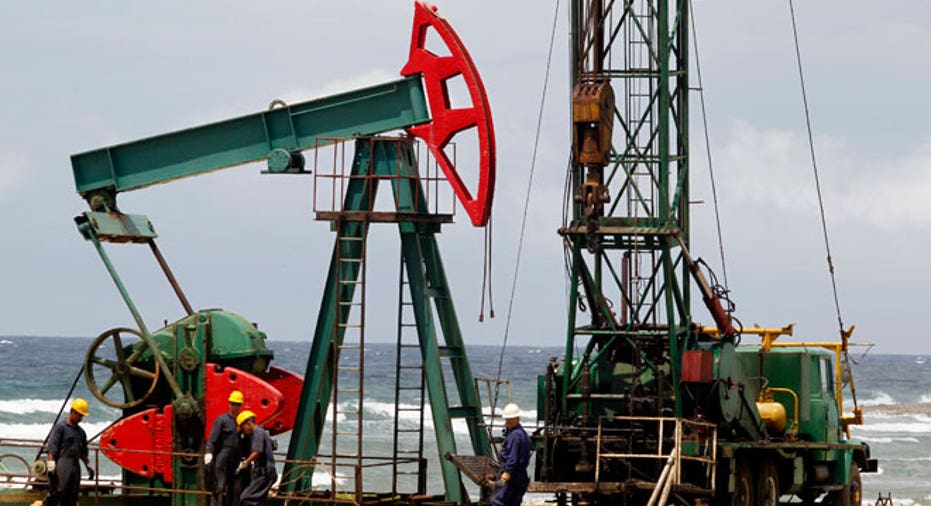Oil Prices Dip on High Supply

Brent crude oil futures fell on Wednesday, pressured by ample supply and fresh worries about Europe's debt crisis.
The optimism on the global economy that pushed equities higher early in the day faded as investors waited to see if the European Central Bank (ECB) would respond to the euro's recent jump after Germany said it was not overvalued.
The ECB is widely forecast to keep interest rates at a record low of 0.75 percent when it meets on Thursday, but the focus will be on whether its policymakers are worried that the euro's strength could undermine any recovery in troubled economies such as Spain.
Underlying demand-supply dynamics also pressured oil, analysts said.
"Production is well above demand and we are heading into (refinery) maintenance, which decreases demand for oil, and this will put an upward limit on prices," said Filip Petersson, an analyst at SEB in Stockholm.
Saudi Arabia, the world's largest oil exporter, kept its crude oil production steady at 9.05 million barrels per day (bpd) in January, from 9.025 million bpd in December, an industry source said.
Brent was down 52 cents to $116.00 a barrel by 1451 GMT, retreating from the previous session, when it hit its highest since mid-September.
U.S. crude fell $1.17 to $95.47 and has dropped 2.3 percent this week, against a fall of 0.6 percent for Brent. Concerns about excess supply at Cushing, Oklahoma - the delivery point for the U.S. contract - weigh on the benchmark.
U.S. crude inventory data is firmly on investors' radars. The weekly inventory report from the Energy Information Administration (EIA) is scheduled for release at 1530 GMT.
Analysts estimate that U.S. commercial crude oil stockpiles rose last week on higher imports and lower refining activity.
Data from the American Petroleum Institute showed that crude stockpiles rose by 3.6 million barrels last week, more than the 2.8 million barrel rise that analysts had forecast.
EURO ZONE OPTIMISM
This week's Markit Eurozone Composite PMI data, based on business activity across thousands of companies, suggested that the crisis-ridden euro zone economy has turned a corner, but this was offset by worries that political strife in Italy and Spain could see a return to anxiety on the debt outlook.
"Concerns over Europe appear to have eased, although problems in the region are still a long way from being resolved and fiscal austerity measures will continue to contribute to soft energy demand throughout 2013," National Australia Bank analysts wrote in a report.
Investors will now be looking out for the ECB's meeting on Thursday and China's trade numbers on Friday for more clues on the health of the global economy and what it may mean for commodities demand.
China's January export growth was likely to have been its strongest in 11 months, though a 17 percent year-on-year surge forecast in a Reuters poll may owe as much to trade cycles and Lunar New Year base effects as a recovery in demand.
Oil markets were also monitoring developments in the Middle East, where sanctions-hit Iran has taken delivery of several new tankers from Chinese shipyards, giving it more flexibility to maintain exports.
Iran and world powers have announced that new talks on Tehran's nuclear programme will take place on Feb. 26, but hopes of progress were tempered when an Iranian official said that the West's goal in talking was to undermine the Islamic republic.
The shooting of a Tunisian opposition politician and further violence in Syria was also on the investors' radar.



















